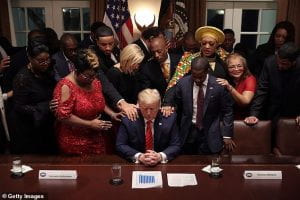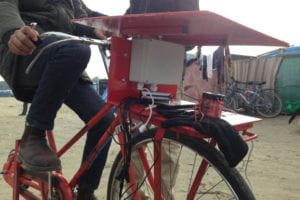Political Theology Seminar Series 2020-21
New reflections on the sacred in contemporary politics

Political theology is a broad and diverse series of investigations into the relationship between theology and politics, particularly the way that theological categories continue to underpin and inform, in oblique ways, modern secular political concepts, discourses, practices and institutions, such as sovereignty, the nation state and democracy. Political theology is fundamentally concerned with the problem of legitimacy and it refers to the absent place of the sacred in modern secular societies. As a mode of enquiry, it gives us an alternative framework and language in which to understand forms of political experience that cannot be adequately grasped by conventional political theory. Debates in political theology have been heavily influenced by the thought of Carl Schmitt, particularly his theory of the sovereign state of exception and the secularisation of theological categories into modern political and juridical concepts. However, new approaches to political theology have sought to move beyond Schmitt’s conservative sovereign-centric paradigm, developing new ways of thinking about the economy, environmental concerns, social and racial justice struggles, and the role of religion and church organisations in public life, as well as drawing on other religious traditions such as Judaism and Islam. The question of the sacred and what it means today may also allow us to understand contemporary political phenomena, such as the rise of populism, post-secularism and the ‘return of religion’ in the public sphere, the significance of symbols in new forms of protest, the flourishing of conspiracy theories, and the new states of exception in the era of Covid-19.
This seminar series brings together a series of experts from different fields – political theory, continental philosophy, law and theology – to explore the intersections between the theological and the political.
Speakers include:
Professor Vincent Lloyd, Theology and Religious Studies, Villanova University; Director of the Political Theology Network (Wed, 11 November 2020 – 6-7:30pm)
Professor Tina Beattie, Catholic Studies, University of Roehampton (Thurs 21 Jan 2021 – 6-7:30pm)
Dr. Peter Langford, Law, EdgeHill University (Wed 11 February 2021 – 6-7:30pm)
Professor Elettra Stimilli, Theoretical Philosophy, Sapienza Universita di Roma (Wed 4 March 2021 – 6-7:30pm)
Dr Eskander Sadeghi-Boroujerdi, Politics and IR, Goldsmiths University of London (Wed 6 May 2021 – 6-7:30pm)
Dr Michael Kirwan, Loyola Institute, Trinity College Dublin (Wed 27 Ma7 2021 – 6-7:30pm)
Dr Jeremy Kidwell, Theology and Religion, University of Birmingham (Wed 10 June 2021 – 6-7:30pm
Seminars will be held on-line (via MS Teams). Virtual attendance open to all
The series hosted by the Research Unit for Contemporary Political Theory (Department of Politics and IR, University of London).
Contact seminar convener and Director, Professor Saul Newman, for details on how to join: s.newman@gold.ac.uk
